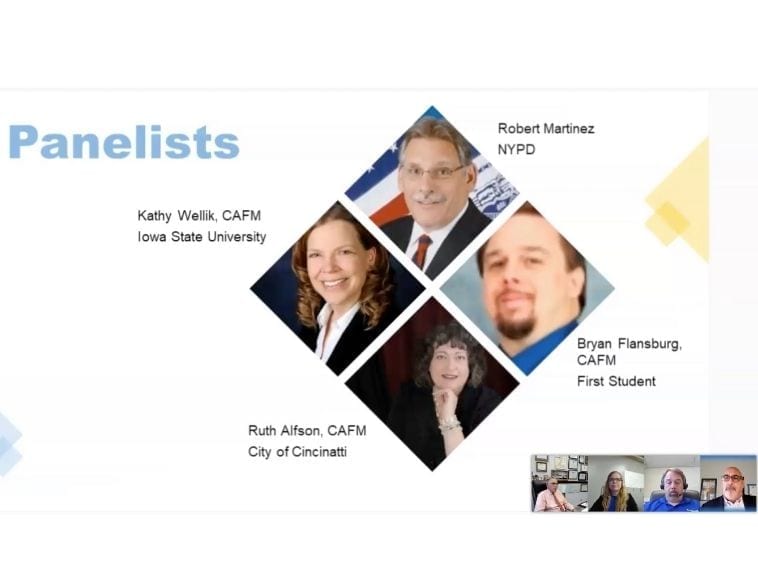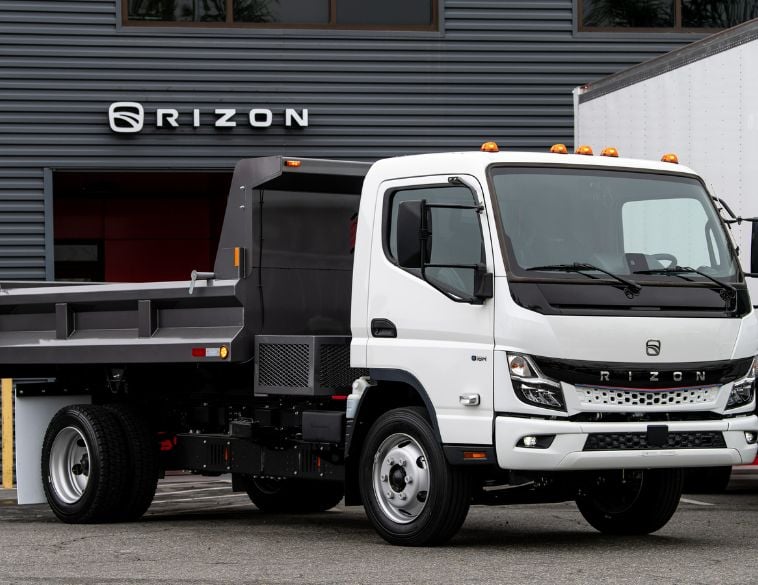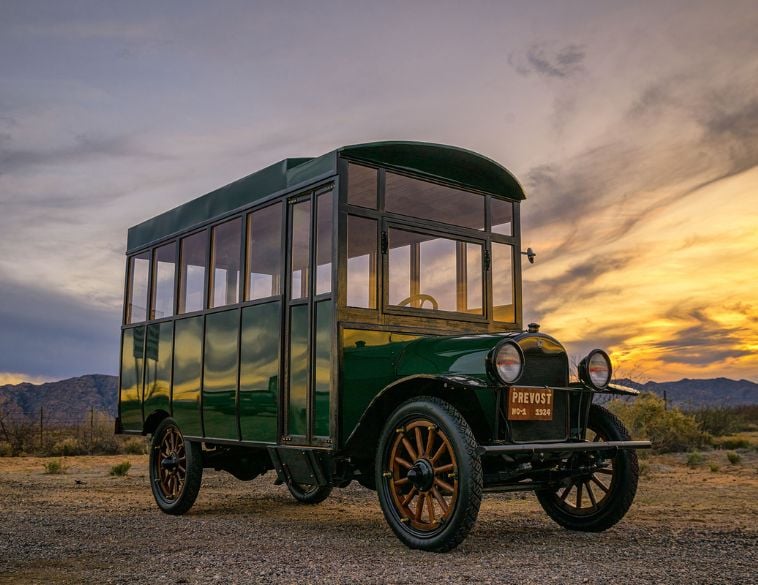Fleet managers need to innovate and cooperate as our industry faces an uncertain future.
Fleet professionals who tuned in to listen to NAFA’s online I&E panel discussion about the “Fleet Response to COVID-19 Pandemic,” learned about some of the tactics being employed to deal with the uncertainty our industry currently faces.
The panel included four seasoned fleet professionals: Kathy Wellik, Director of Transportation Services, Iowa State University; Robert Martinez, Deputy Commissioner, NYPD; and NAFA Past Presidents Bryan Flansburg, Location Manager, First Student; and Ruth Alfson, Fleet Manager, City of Cincinnati.
The panel addressed the challenges fleets face as they strive to implement efficiencies in these uncertain times. They offered advice to fleet managers who are facing budget crunches and growing demands.
Review contracts and agreements
One of the suggestions is to take a closer look at existing contracts and agreements, and either renegotiate the terms or ask for new RFPs. “With the pandemic, and with a lot of businesses closing or seeing a reduction in the amount of business they’re doing, they started offering us some great deals on parts and services,” Alfson said of her own experience. “And that led us to think about how we are actually negotiating our contracts. We think this will help us, in the long run, to get some better services for better prices than we’ve experienced in the past.”
The panel agreed that the pandemic has changed the world of fleet and how we do business. “Our fleet is probably never going to be the same,” Wellik explained, especially since students are now attending her University online rather than in person. “We want to make sure we have the proper technology partner, and good data, so that we can continue to right-size our fleet,” she explained.
Flansburg agreed that right-sizing has always been a focus of fleet, and that now “we need to be innovative and flexible.” In addition to right-sizing, however, fleet managers are dealing with safety concerns created by the virus.
“The question fleet managers need to consider today is, how are we going to disinfect our vehicles, and how are we going to make sure those vehicles are safe for the next driver?” Flansburg said.
Fleet managers need to figure out who will be tasked with the responsibility to disinfect each vehicle, he added. Will it be the last driver, the next driver, or a dedicated staff member who is responsible for the thorough cleaning of each and every vehicle.
At the NYPD, Martinez is dealing with a shrinking demand for vehicles. “We’ve had a surge in retirements,” he explained. “This has reduced our workforce.” With his workforce decreasing by an estimated 6,000-7,000 individuals, Martinez explained that the number of vehicles needed for patrol and investigation has been impacted.
“Fleet reduction and fleet greening would alleviate some of the budget shortfalls,” he explained. “Less vehicles means less repairs needed, less replacement vehicles needed, and less fuel needed. Greening the fleet would also equate to a reduction in the fuel budget, as well as a reduction in repairs. That will probably be our strategy as we move forward with our smaller fleet.”
As we navigate the choppy waters of uncertainty, one of the key takeaways from this panel discussion is that communication and cooperation are key, especially as fleets deal with constraints on their budgets.
“There will be limitations that no one will be able to overcome,” Alfson concluded, adding that fleet managers need an open mind and that they have to work in harmony with other departments. “If we’re all trying to go for the same dollar, it’s not going to work,” she said. “But if everyone tries to go for a portion of that dollar, then you can work together and try to get things accomplished.”



